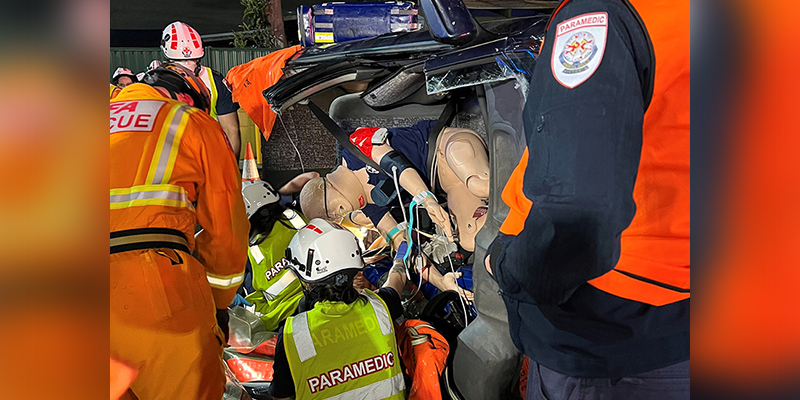The Translational Research Institute for Space Health (TRISH) at Baylor College of Medicine in consortium with Caltech and the Massachusetts Institute of Technology (MIT) announced today new funded $300,000 partnerships with teams at Texas State University and the University of Florida, awardees of TRISH’s Diversity Partnership Solicitation Program. The program is an important aspect of TRISH’s ongoing commitment to increasing engagement from underrepresented groups in the field of space health research.
Empowered by NASA’s Human Research Program, TRISH is a virtual institute that finds and funds disruptive and innovative science and medical technologies to improve astronaut health and reduce performance risks that space explorers face. To understand and overcome the barriers faced by communities that have not engaged with the space program, TRISH commissioned a survey last fall of professionals interested in pursuing space health research and identified gaps and opportunities for improvement. This new funding initiative was created as one method to increase the institute’s reach and integrate new perspectives into its work.
“We go to space to improve life everywhere, and we must do so representing everyone,” said Dr. Asha S. Collins, chair of TRISH’s Diversity Advisory Board. “The members of TRISH’s Diversity Advisory Board helped select two strong partners through our Diversity Partnership Program, and their work will move us closer to achieving that reality for the future of space exploration for all.”
The two projects were selected for their innovative means of facilitating underrepresented researcher engagement. Dr. Kristina Collins will use Texas State University’s existing virtual education tools to create novel space health content with digital badges and certifications. The University of Florida team, led by Dr. Rachael Seidler, is partnered with Texas A&M University to survey the field and build a database of underrepresented researchers interested in pursuing space health research and a second database of leaders in this field open to new collaborators and mentorship. Both teams will build, train and support a cohort of underrepresented researchers to be successful in future applications for space health research funding.
Selected projects are:
B-SURE: Boosting Spaceflight Underrepresented Researcher Equity
Principal Investigator: Dr. Rachael Seidler, University of Florida
Co-Investigators: Drs. Josephine Allen and Christine Wegner, University of Florida; Dr. Ana Diaz Artiles, Texas A&M University.
Lyndon B. Johnson Institute for STEM Education and Research Space Health Inclusion Partnership
Principal Investigator: Dr. Kristina Collins, Texas State University
Co-Investigators and Collaborators: Drs. Leslie Huling, Barbie Buckner and Sara Torres, Deepika Sangam, Texas State University.
TRISH’s Diversity Partnership Solicitation advances the institute’s diversity, equity, inclusion and accessibility goals. These goals align with NASA’s own goals, which include putting the first woman and first person of color on the moon in the upcoming Artemis missions. The partnership solicitation lays a foundation to recruit, train and retain space health researchers from underrepresented backgrounds, including women, people of racial and ethnic groups that have been underrepresented in health sciences and other groups.
Led by Baylor College of Medicine’s Center for Space Medicine, TRISH is a consortium that includes partners Caltech and MIT. NASA recently awarded the institute a six-year extension to further its work by delivering disruptive solutions to mitigate biomedical risks for human exploration while advancing terrestrial health technologies. Learn more about TRISH at bcm.edu/spacehealth and follow the institute on Facebook, Twitter and Instagram (@BCMSpaceHealth).








